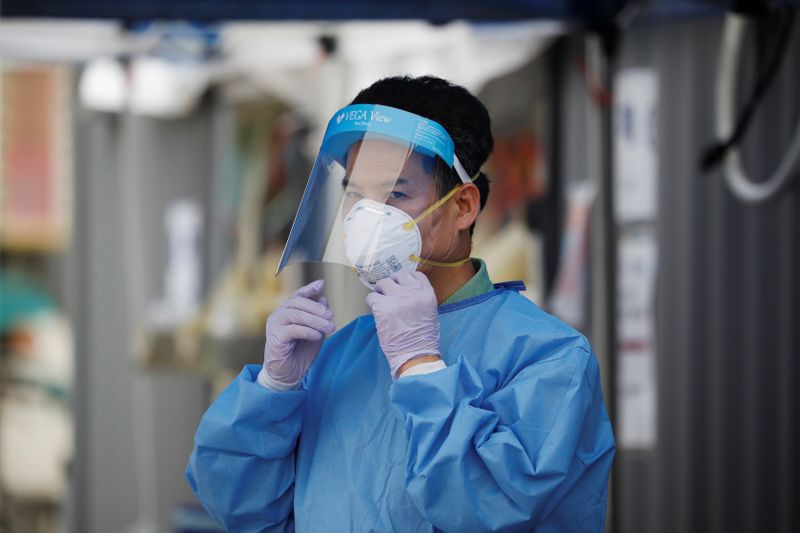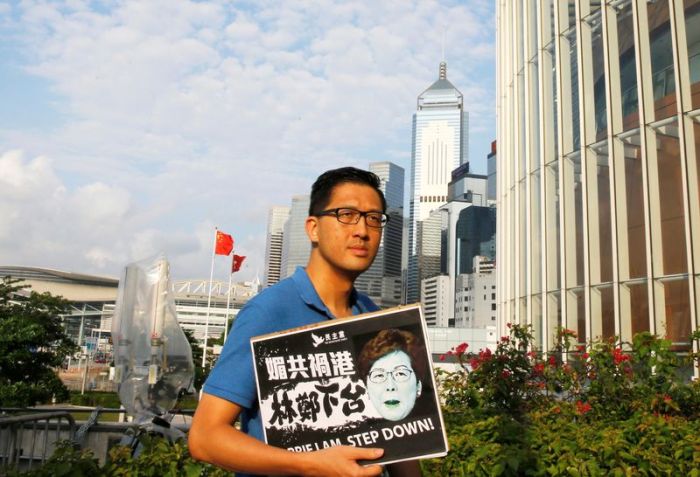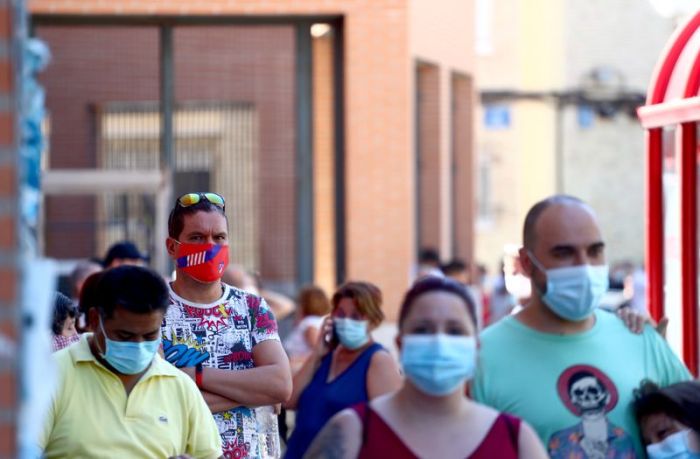SEOUL (Reuters) – South Korea urged businesses on Thursday to have employees work from home after reporting the highest daily number of coronavirus cases since March, as it also flagged the risks of new clusters at call centres and logistics warehouses.
South Korea reported 441 new coronavirus cases as of Wednesday, the most daily infections since early March when the country had the first large outbreak, the Korea Centers for Disease Control and Prevention (KCDC) said on Thursday.
While authorities said the recent surge has mostly to do with recent outbreaks in a church and at an anti-government rally earlier this month, they warned about the possibility of new clusters in densely-populated workspaces.
“Please carry out thorough checks of risk factors at workplaces, where the work environment is especially vulnerable to infection, such as call centres and logistics warehouses,” said Health Minister Park Neung-hoo.
“To reduce transmission within workplaces, please reduce the number of staff through flexible work hours, work from home and working staggered hours.”
In March, South Korea reported a call centre outbreak, while at least 100 cases were linked to a logistics centre run by e-commerce giant Coupang Corp in June.
Park said at least 80% of the infections over the past week are from the densely populated Seoul metropolitan area and many were linked to the church and political rally.
The new cases bring the total number of coronavirus infections in South Korea to 18,706 and the COVID-19 death tally to 313. A total of 933 infections have been traced to the church outbreak, KCDC said.
Health authorities meanwhile have sent a list of at least 51,000 people, who have been categorised to be linked to the rally on Aug. 15, to local governments, health ministry official Yoon Tae-ho told a briefing.
The jump in novel coronavirus cases come as the government is pushing for a healthcare reform, which has sparked opposition from doctors, prompting strikes.
Health authorities are now floating the possibility of imposing the highest level of social distancing, where schools and business would be urged to close, inflicting more damage on Asia’s fourth-largest economy.
(Reporting by Sangmi Cha; Editing by Jacqueline Wong and Ana Nicolaci da Costa)























